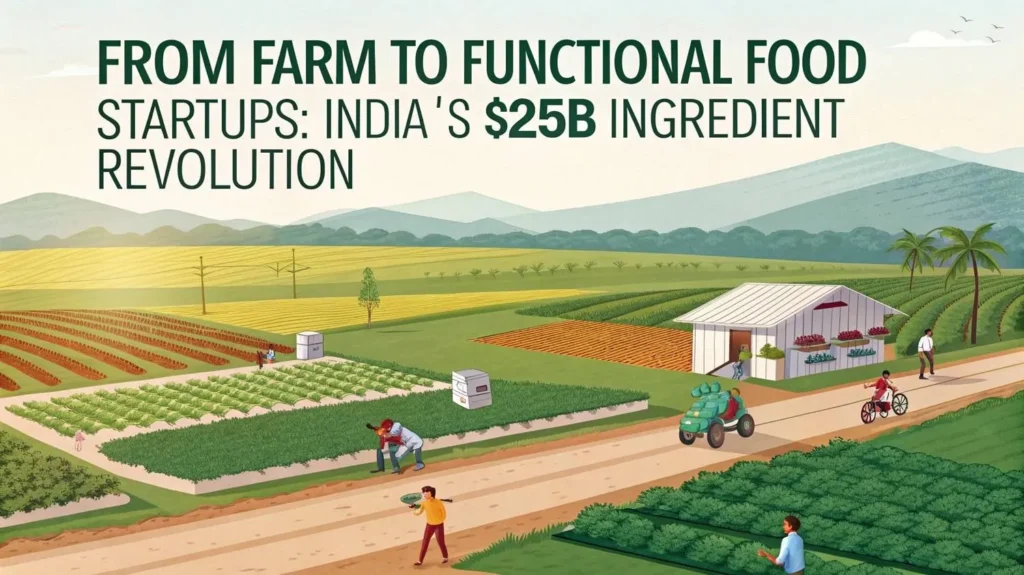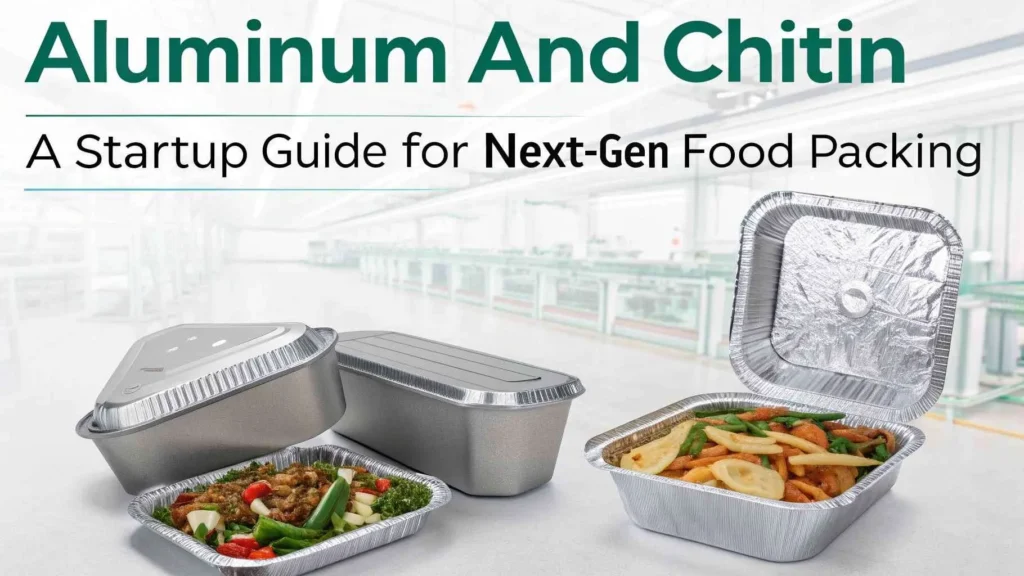Dairy Startups in India: From White Revolution to Global Expansion
India is more than just the world’s largest milk producer. It is also a superpower. India produces more than a quarter of the milk consumed in the world, but this is a story that goes beyond volume. This is about rural empowerment, innovation, and a booming startup ecosystem that will take dairy products beyond their traditional forms and markets.
India’s dairy industry is one of the most promising for startups. With its growing domestic market, new export channels, and product categories such as fortified milks, probiotic curds, and vegan alternatives.
1. India’s Dairy Landscape at a Glance
Production Size
- Every year, over 230 million metric tons of milk are produced.
- Contributes to more than 25% of the world’s milk supply.
- The production is spread over millions of smallholders to ensure inclusivity and grassroots impact.
Export potential
- Exports of dairy products are modest in comparison to production — approximately 63,700 metric tons worth $272 million.
- There is a huge headroom for growth for exports with high value added, such as cheese, fortified dairy powders and functional beverages.
Cultural Depth
India’s cultural and culinary identity is deeply rooted in milk, from curd rice to paneer in the North. This emotional connection not only creates a strong demand in India but also gives “original Indian dairy products” a sense of authenticity to global consumers.
2. Why This Industry Matters for Startups

a. Massive Domestic Base
India’s domestic market for dairy products is a large consumer base, even before exports are considered.
b. Untapped Segment of Value-Added Segment
The total amount of processed dairy products is less than 20%, so the possibilities for yogurt, cheeses, functional milk drinks, and dairy-based snacks seem endless.
c. Export Upside
Indian entrepreneurs who invest in infrastructure and branding can reach premium markets throughout the Middle East, Africa, and Southeast Asia.
d. Government Support
Subventions, export incentives and technical assistance are provided by schemes under the Ministry of Food Processing Industries and APEDA.
Related Article:- Most profitable idea for Milk Processing
3. High-Potential Startup Opportunities in the Dairy Sector
a. Fortified Milk and Nutraceutical Beverages
- Opportunity: Adding vitamin A & D into milk to combat deficiencies; creating functional beverages targeting immunity, bone, and child nutrition.
- Market advantage: Health-conscious consumers in India as well as abroad; government assistance through the Food Fortification Resource Center under FSSAI.
- Startup angle: Develop fortified drinks or milk powder for export markets such as Africa and Southeast Asia.
b. Organic and A2 cow milk
- Opportunity: The Premium segment of A2 and organic milk is gaining popularity in India’s urban areas and abroad.
- Market advantage: Higher Margins and a loyal customer base
- Startup angle: Partner up with farmer cooperatives for A2 milk verification; invest in cold chain logistics and digital subscriptions.
c. Ethnic Dairy Products for export
- Opportunity: Indian sweets, regional dairy products, such as paneer and shrikhan,d and flavored lassi, have strong demand in the diaspora.
- Startup angle: Create export-compliant, shelf-stable versions; leverage APEDA to access international markets.
d. Plant-based and vegan alternatives
- Opportunity Dairy startup companies like White Cub and Epigamia are pioneering lactose-free options, vegan yogurt, and almond milk.
- Startup angle: Produce plant-based alternatives to dairy alongside traditional lines in order to protect against future changes in consumer behavior.
e. Dairy Services Driven by Technology
- Opportunity: IoT sensors, AI-based cow health apps, blockchain traceability systems, and other technologies are becoming increasingly important to the dairy industry.
- Startup angle: Create software platforms for private dairies and cooperatives, or provide “cows as a service” to small farmers.
4. NPCS – Your Partner in Building a Dairy Venture
We, at Niir project Consultancy services (NPCS), provide professional consulting in the preparation of market survey cum Detailed Techno-Economic Feasibility Reports when setting up new businesses or industries.
The following are included in our reports:
- Detailed manufacturing process
- Market Research and Demand Analysis
- Diagrams of process flow
- Product mix and capacity planning
- Details of machinery and raw materials
- Profitability analysis and full project financials
We aim to assist entrepreneurs in evaluating industrial projects for feasibility, profitability and scalability. Whether you’re planning a fortified dairy plant, an organic A2 milk supply chain, or an export-focused facility for dairy snacks, NPCS will create a roadmap that is tailored to your vision.
5. Import-Export Data and How Startups Can Use It
India exported $270 million worth of dairy products, a small fraction of the global trade. This gap presents major opportunities for startups.
- Middle East Ghee and fortified milk powder are popular in traditional cooking and infant food.
- Africa: Milk powders with nutritionally enhanced milk and UHT milk are expected to grow rapidly.
- Europe: Organic milk A2 and ethnic dairy products are premium categories.
The government portals www.apeda.gov.in and Spices Board/NDDB Export Statistics provide insights into import-export patterns. This allows startups to identify niches and design products that are export-ready.
6. Government Support Framework
Key Agencies
- MoFPI: PMKSY Subsidies for Cold Chains, Processing Units, and Infrastructure.
- National Dairy Development Board: Technical advice, training programs, and financial support for cooperatives.
- Rashtriya Gokul Mission, Department of Animal Husbandry: Focuses on indigenous breed development.
- FSSAI: Standards and Guidelines for Fortified and Value-Added Dairy Products
Visit:
- https://www.mofpi.gov.in
- https://www.nddb.org
- https://www.fssai.gov.in
Why This Matters
Government support lowers startup capital costs, lowers barriers to entry, and speeds up time-to-market.
7. MSME Success Stories to Inspire New Entrepreneurs
Amul-The Cooperative Model
Amul turned India’s milk sector from a scarcity into a surplus. Amul’s cooperative model empowered small farmers in millions and showed that scale and inclusivity could coexist.
Mother Dairy, Urban Distribution Pioneer
Mother Dairy has created one of India’s most reliable cold chains, setting the benchmark for quality and urban reach.
Epigamia: Startup disruption in Yogurt
Epigamia, a homegrown startup, introduced Greek yogurt, lactose-free products, and expanded into plant-based options. It appeals to health-conscious young people and is expanding its product line.
White Cube – Vegan Dairy Challenger
White Cub created India’s first plant-based ice-cream brand. It shows how even a niche segment of the dairy industry can be scaled with good branding and online distribution.
These stories demonstrate that Indian milk entrepreneurship is not confined to large dairy cooperatives – agile startups and MSMEs are able to innovate, create niches and go global.
8. Business Models for New Entrepreneurs
a. Integrated Dairy Plant
Establish a factory for the collection of milk, its processing, and production for value-added products (cheese, butter, yogurt). Investment is high, but quality and branding are tightly controlled.
b. Contract Processing
Offer processing services to brands or farmer cooperatives that lack infrastructure. Low capital costs, stable income, and the potential to scale up gradually.
c. Value-Added Line Focused on Export
Build a dedicated facility for export with APEDA assistance.
d. Dairy-Tech Platform
Develop IoT solutions for herd monitoring, milk testing, and traceability. Sell SaaS as a service to private and cooperative dairies.
9. Sector Challenges and How Startups Can Overcome Them
- Infrastructure Gaps – Consider solar-powered chilling systems or mobile collection centers to solve last-mile problems.
- Quality Consistency Adopt rapid test technologies; obtain certifications such as ISO 22000 and HACCP.
- Export compliance: Study the country norms of your target market carefully and customize packaging and formulations accordingly.
- Price volatility: Hedging raw milk costs through long-term contracts.
10. Upcoming Trends Reshaping the Dairy Industry
a. Technology meets Tradition
Dairy operations are being transformed by apps for the health of cattle, IoT sensors to measure milk quality, drones to survey fodder, and blockchain technology for traceability.
b. Fortified and functional dairy
Fortified and functional dairy product sales will surpass plain milk as global health awareness grows.
c. Green Dairy Revolution
The use of biogas plants that are powered by cow dung and water reused in the processing units to reduce methane emissions is becoming more common.
d. Direct-to-Consumer Models
Urban consumers prefer subscription-based delivery of organic or specialty dairy products, which presents an opportunity for startups that can combine logistics and technology.
Project Report on:- Dairy Products & Milk
11. Point-Wise Suggested Products and Opportunities
1. Fortified Milk Powder
- Export to Africa and Asia.
- Add micronutrients in order to combat malnutrition
- Packaging in shelf-stable formats for long shelf life.
2. Cheese and Specialty Dairy Products
- Target global gourmet markets.
- Exporters can customize paneer, cheese, and mozzarella.
- Create a brand image based on authenticity and quality.
3. Drinks and Yogurts with Probiotics
- Take advantage of the trend for functional beverages.
- Introduce Ayurvedic and immunity-boosting ingredients.
- Health-conscious youths in metros are a target market.
4. Vegan Dairy and Plant-Based Alternatives
- Offer ice creams made with almond milk, oatmilk, or other plant-based milks.
- Lactose-intolerant consumers should be targeted both on the domestic and international markets.
- Use online D2C channels to scale up quickly.
5. Dairy Snacks & Ready-to-Eat Desserts
- Export-ready packaging for ethnic sweets
- Offer private label service to foreign retailers.
- Extend shelf life by using modified-atmosphere packages.
12. Action Plan for Aspiring Entrepreneurs
- Create a Feasibility report: Work closely with consultants such as NPCS in order to develop your business model.
- Take advantage of government schemes: Request funding from MoFPI or NDDB for technology and infrastructure upgrades.
- Create a Branding Strategy: Focus on authenticity, sustainability, and health benefits.
- Create export networks: Take advantage of APEDA buyer-seller meetings and international trade shows.
- Investing in quality and R&D: Partnering with institutions to innovate products.
Conclusion – The White Wave Is Just Beginning
India’s dairy industry has evolved beyond just producing milk. Now, it is a hub for exports, innovation, and entrepreneurship. Indian dairy is a great opportunity for startups to create businesses that are profitable and have a positive social impact. It has a large domestic market and an unmatched raw materials base.
Entrepreneurs who enter this market today, whether it’s in the fortified powders, ethnic exports, or dairy-tech platforms, can be pioneers of the future wave of growth. The path to a global brand can be paved by aligning with government initiatives, leveraging NPCS feasibility studies and adopting innovative business model.
Watch:- Youtube Channel
How NPCS Can Help You
NPCS (Niir Project Consultancy Services) provides end-to-end support for entrepreneurs, including:
- Detailed Project Reports (DPR).
- Financial modeling & ROI analysis.
- Plant layout & machinery selection.
- Vendor & buyer connect.
- Licensing & compliance guidance.
With expert support, your chances of success in this high-growth sector increase significantly.
Niir Project Consultancy Services
106-E, Kamla Nagar, Opp. Mall ST,
New Delhi-110007, India.
Email: info@entrepreneurindia.co
Mobile: +91-9097075054
Website:https://www.entrepreneurindia.co





